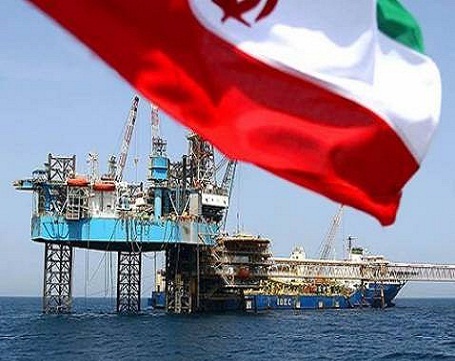Iran could face budget deficit this year

By Sara Rajabova
Iran is under intense financial pressure from the U.S. and European trade restrictions imposed over its disputed nuclear program. The US and EU bans on Iran's economy are expected to cause budget deficit in the country.
The Iranian parliament's economic committee chairman, Gholamreza Mesbahi-Moqaddam, has predicted that the administration would face 740 trillion rials (some $60 billion) budget deficit in the current calendar year, which began on March 20.
"Oil incomes have decreased and the country is facing an unfavorable economic condition," the Fars news agency quoted Mesbahi-Moqaddam as saying last week.
He put the current volume of oil sales at around 1.03 million barrels per day, saying that the figure had been targeted at 2.5 mbpd.
On October 15, EU governments imposed further sanctions against major Iranian state companies in the oil and gas industry, and toughened restrictions on the central bank, cranking up financial pressure over Tehran's nuclear program.
The West is pressing Iran into shutting down its nuclear program on fears that Tehran may eventually develop nuclear weapons.
Tehran, however, claims that all of its nuclear research is exclusively peaceful.
The bans have also led to a sharp drop over the past year in its oil exports, a major source of hard currency earnings and revenues for the government. Iran banned exports of 50 basic goods to preserve essential items as the sanctions bite.
On the other hand, Japan's crude oil imports from Iran in September fell 36.1 percent from a year earlier, data from the trade ministry showed, as Western sanctions continued to squeeze exports from the Middle Eastern country, Reuters reported.
Although India imported nearly 34 per cent more oil in September over a year ago, Asia's third-largest economy, is trying to diversify its crude slate and wants to gradually reduce dependence on Iran, Reuters reported.
Iran has now taken fourth place in terms of crude supplies -- after Saudi Arabia, Iraq and Kuwait -- due to the US sanctions on the oil-rich nation.
Besides, Turkey's crude oil imports from Iran also reduced -- in half to 110,308 barrels per day (bpd) in September from August while imports from alternative suppliers were on the rise.
South Korea's overall crude oil imports fell 2.8 percent in September from a year ago to 78.36 million barrels, or 2.6 million barrels per day (bpd).
The world's fifth-largest importer of crude oil and one of Iran's biggest oil customers, imported 38.77 million barrels of crude oil from Iran in the first nine months of this year, down 41.3 percent year on year, according to the state-run Korea National Oil Corp data.
Iran is slipping down the ranks of the world's oil producers, having been overtaken by Iraq as the second-largest producer in the Organization of the Petroleum Exporting Countries behind Saudi Arabia earlier this year.
Oil and oil production revenues make up about a half of the Iranian annual budget, which is $5.660 trillion rials (about $449 billion based on the official USD rate in Iran).
Seyed Shamseddin Hosseini, Iranian Minister of Economic Affairs and Finance, announced earlier in October that Iran is planning to fight the sanctions, imposed on Iranian oil incomes by the Western countries.
Iranian Oil Minister Rostam Qasemi said Iran will shut down its oil exports if the West intensifies sanctions against the Islamic Republic.
According to the latest report of the International Energy Agency, published on October 12, Iran's crude oil exports and output stood at 860,000 barrels and 2.63 million barrels per day respectively in September, compared to 2.4 million barrels of oil exports and output of 3.68 million barrels per day last year.
Thus, Iran lost about two-thirds of oil export revenues during the current year, which constituted $114.76 billion in 2011. Last year, Iran's total exports amounted to $130.54 billion, which means the bulk of Iran's export income is made up by petroleum and oil production revenues.
According to OPEC statistics, in 2011, Iran's daily oil refining capacity was only 1.772 million barrels, and in case Iran cuts oil crude export, it will reduce oil output to 858,000 barrels per day.
This means Iran should shut down some of its oil fields and close the wells, analysts say.
Here we are to serve you with news right now. It does not cost much, but worth your attention.
Choose to support open, independent, quality journalism and subscribe on a monthly basis.
By subscribing to our online newspaper, you can have full digital access to all news, analysis, and much more.
You can also follow AzerNEWS on Twitter @AzerNewsAz or Facebook @AzerNewsNewspaper
Thank you!
